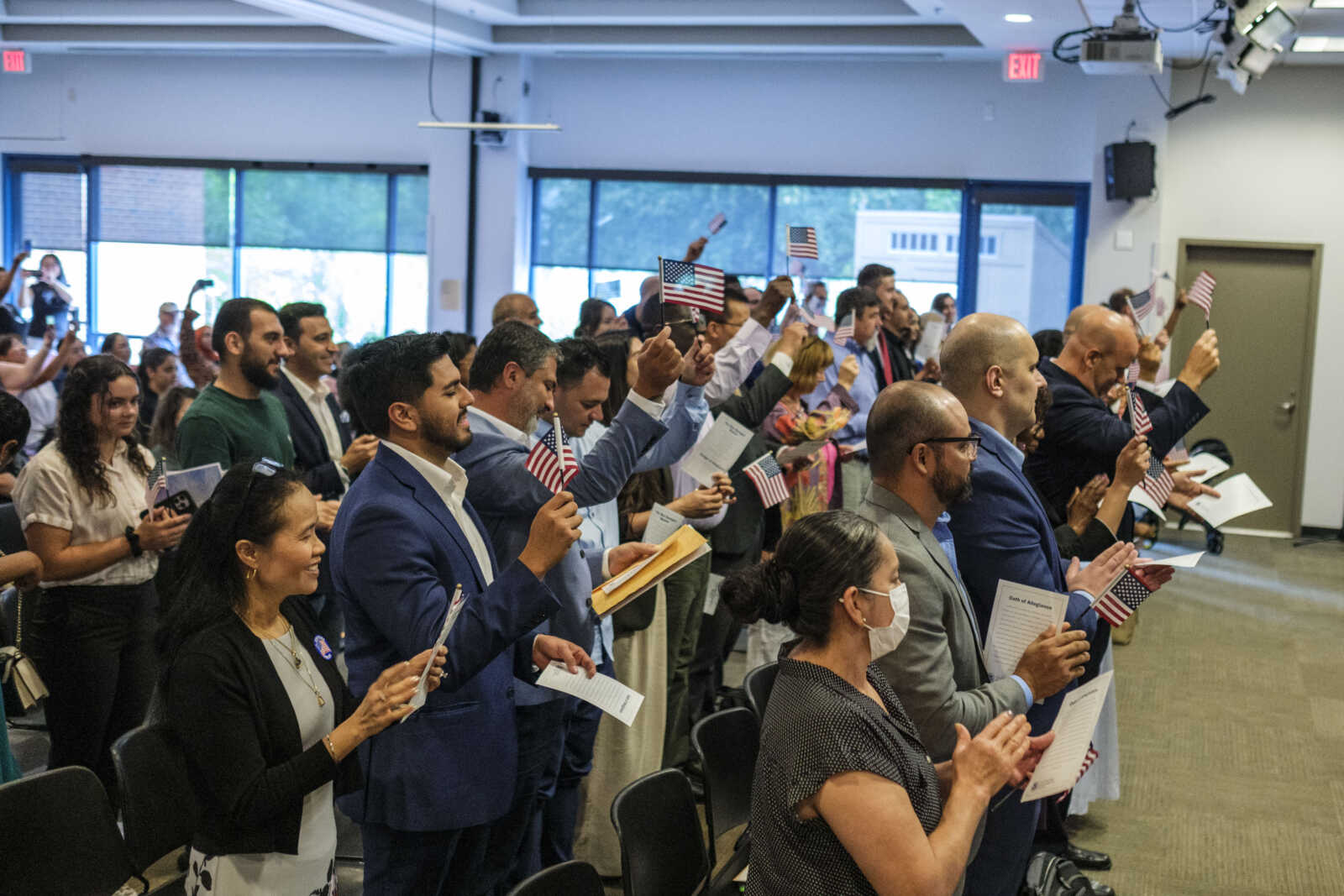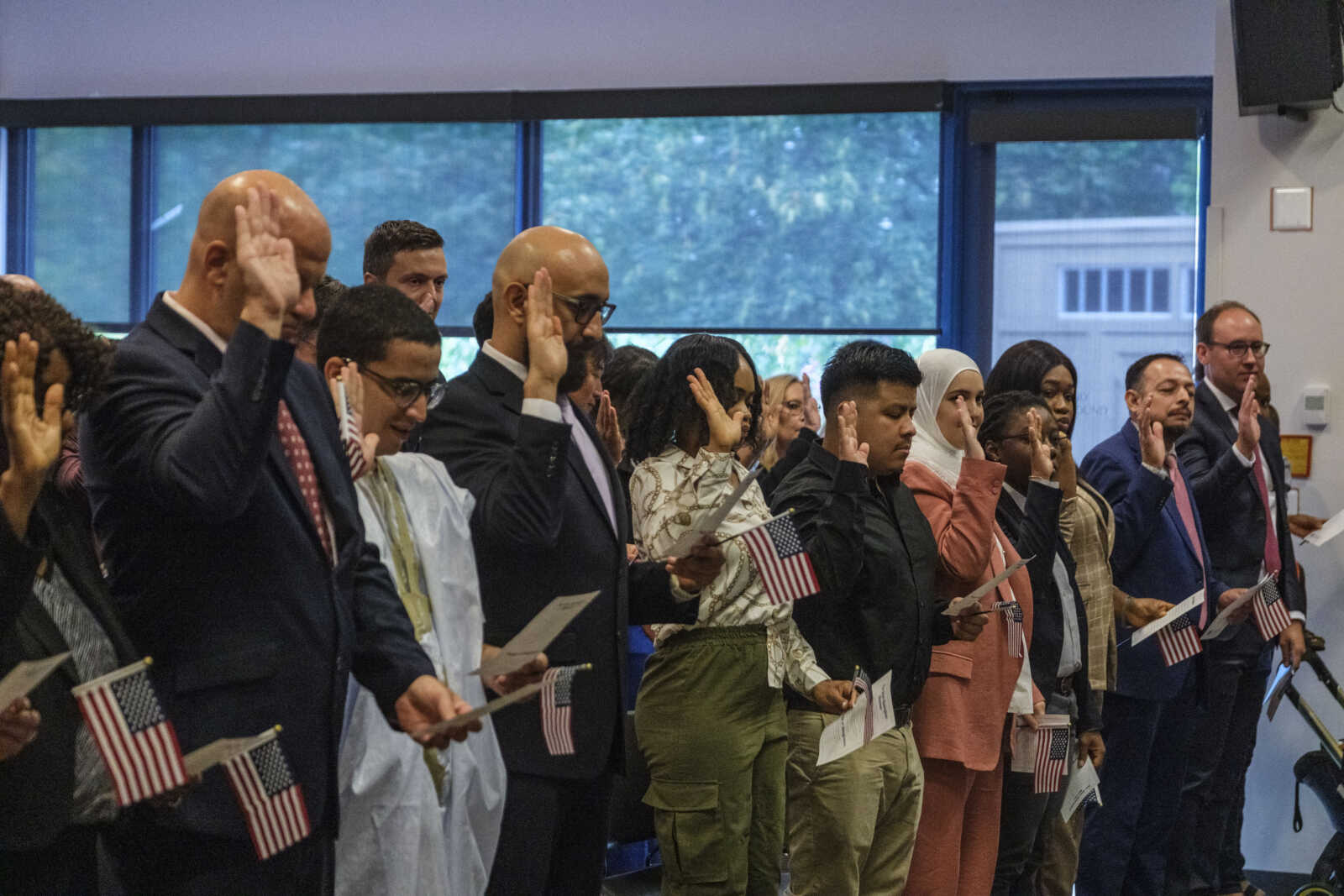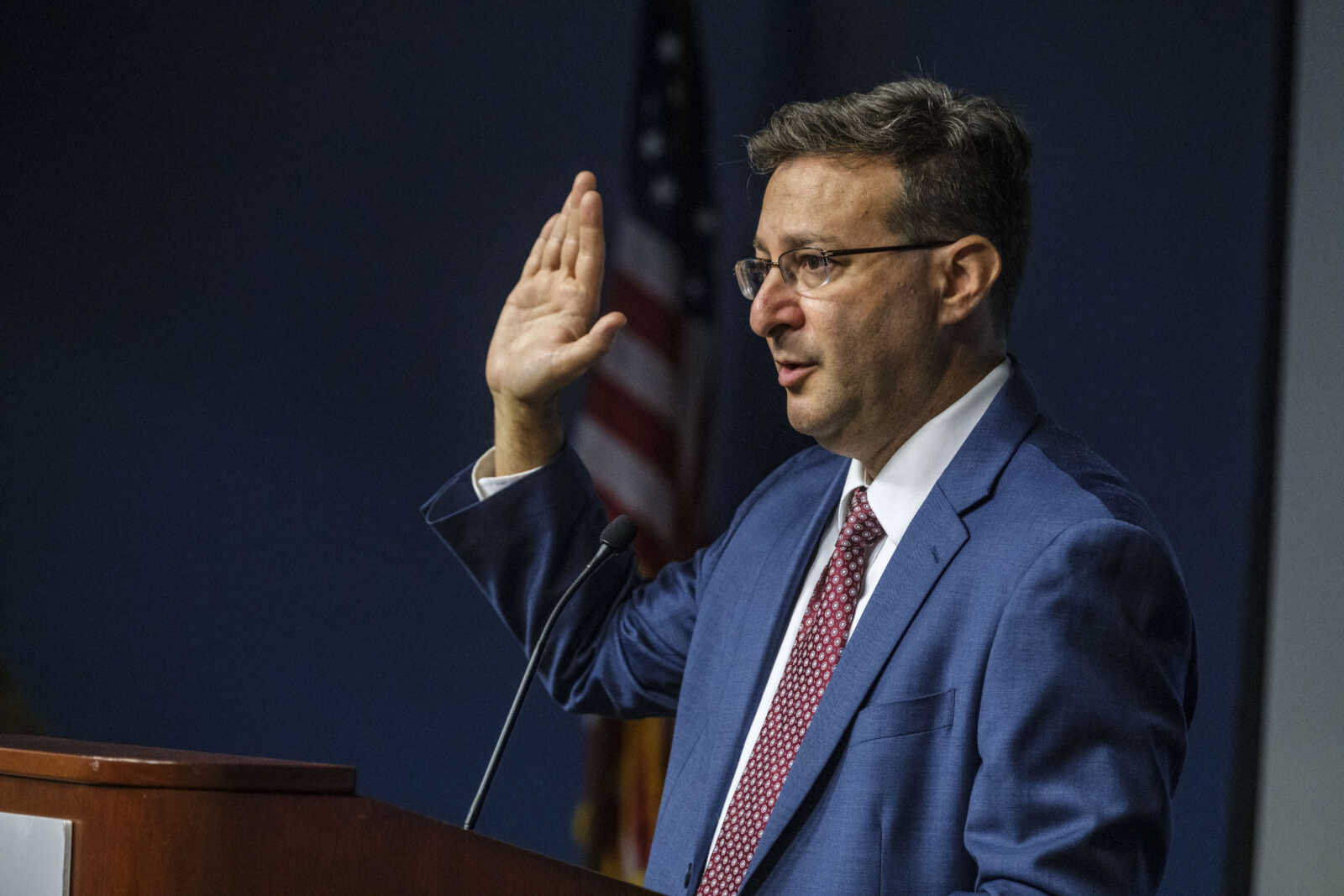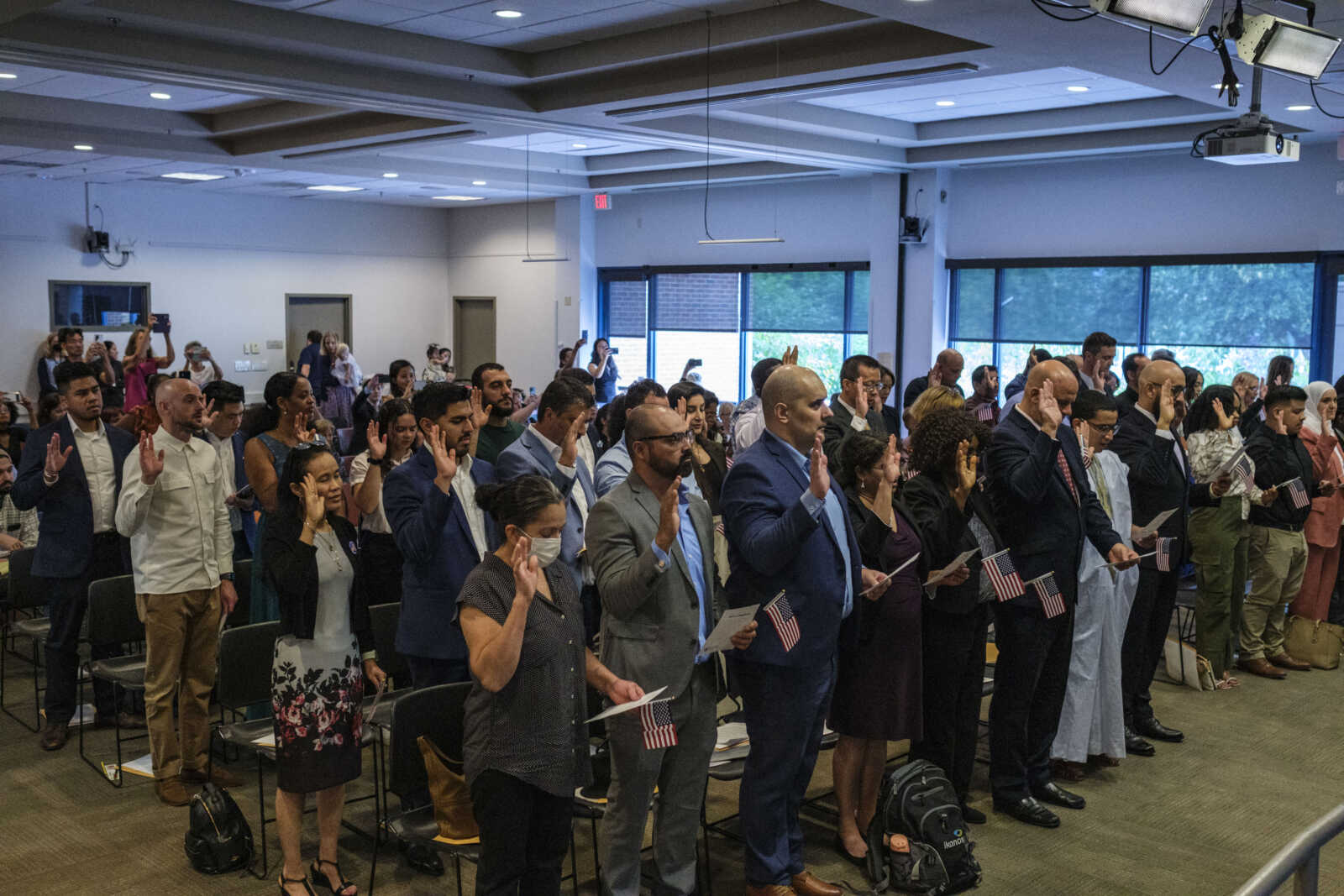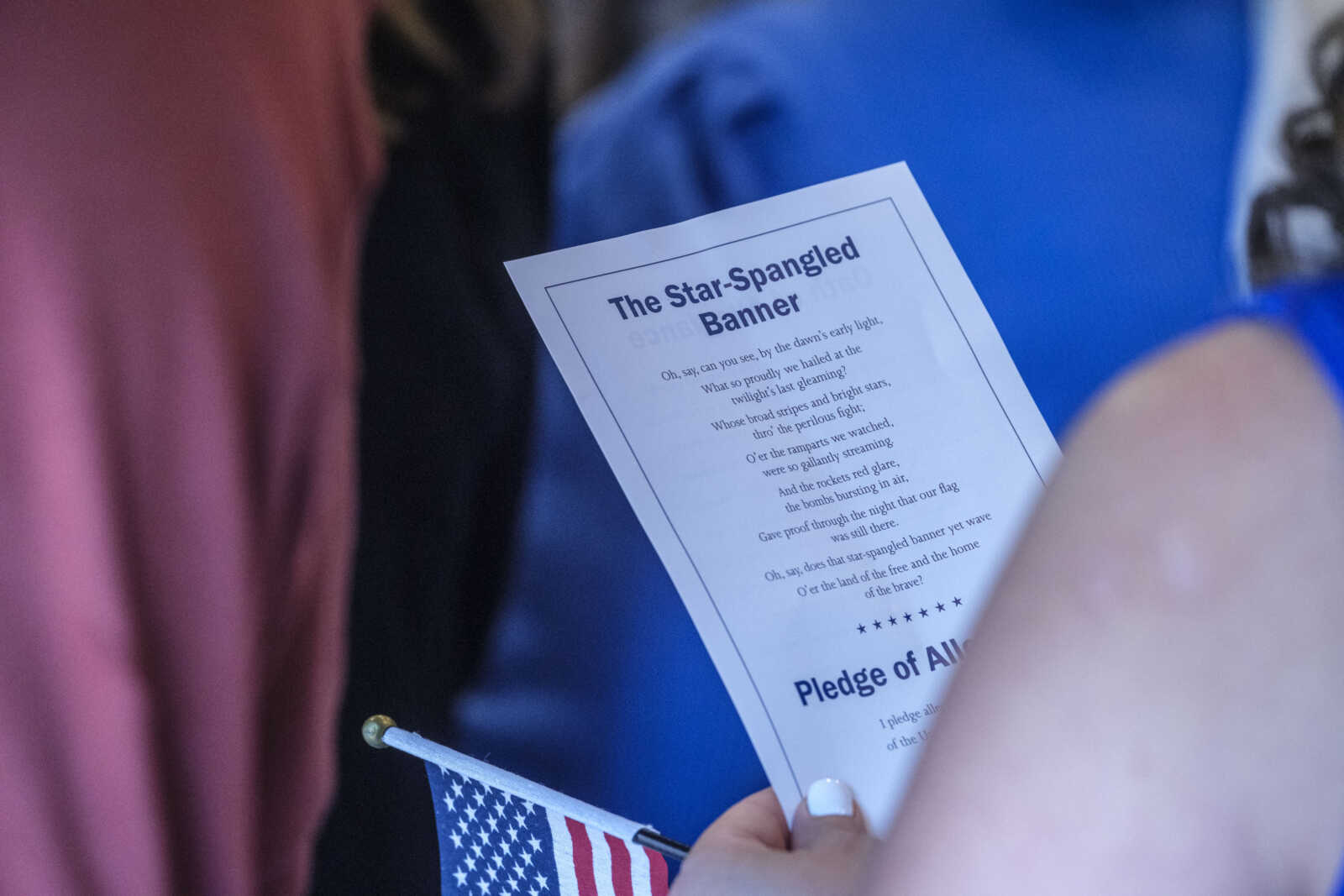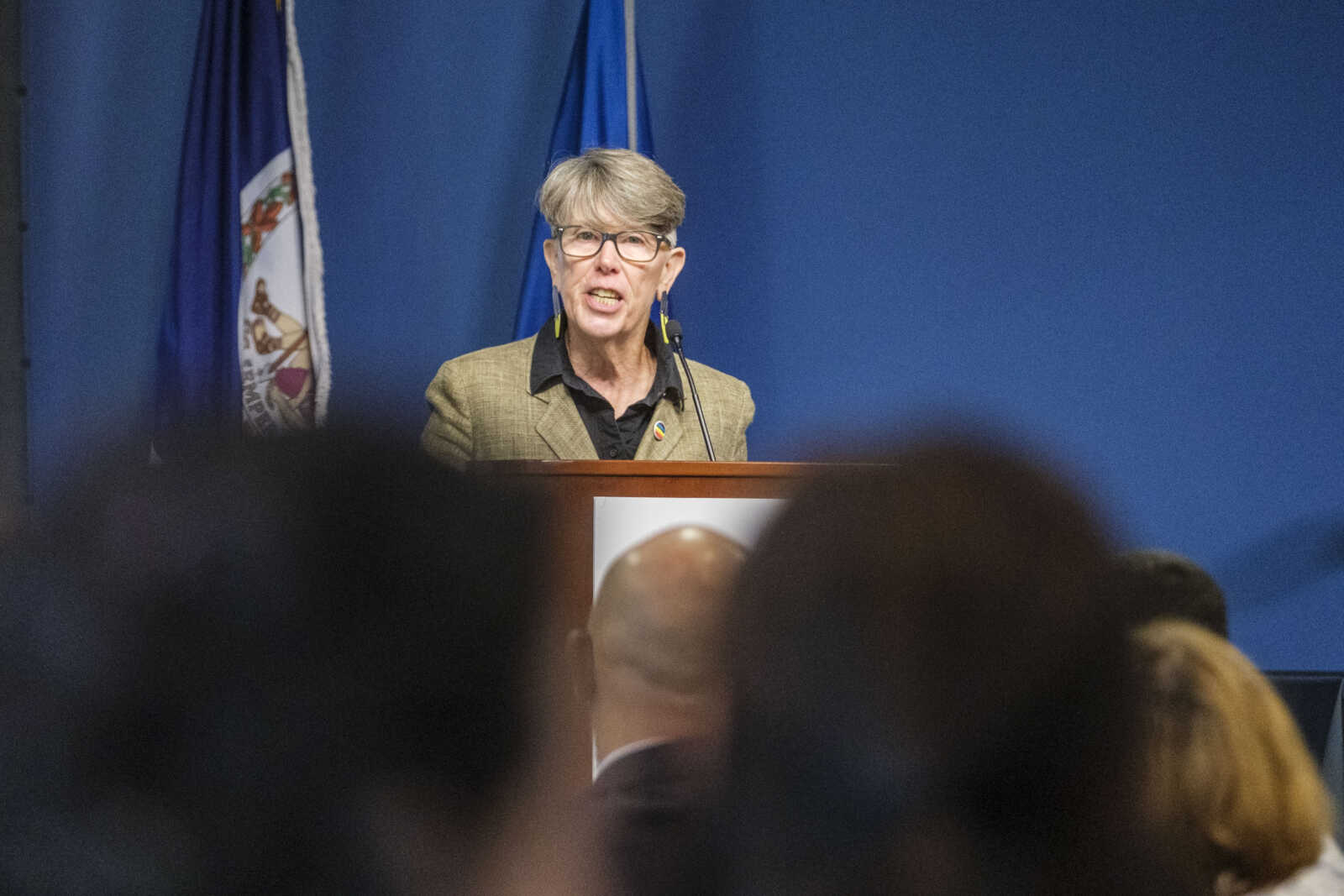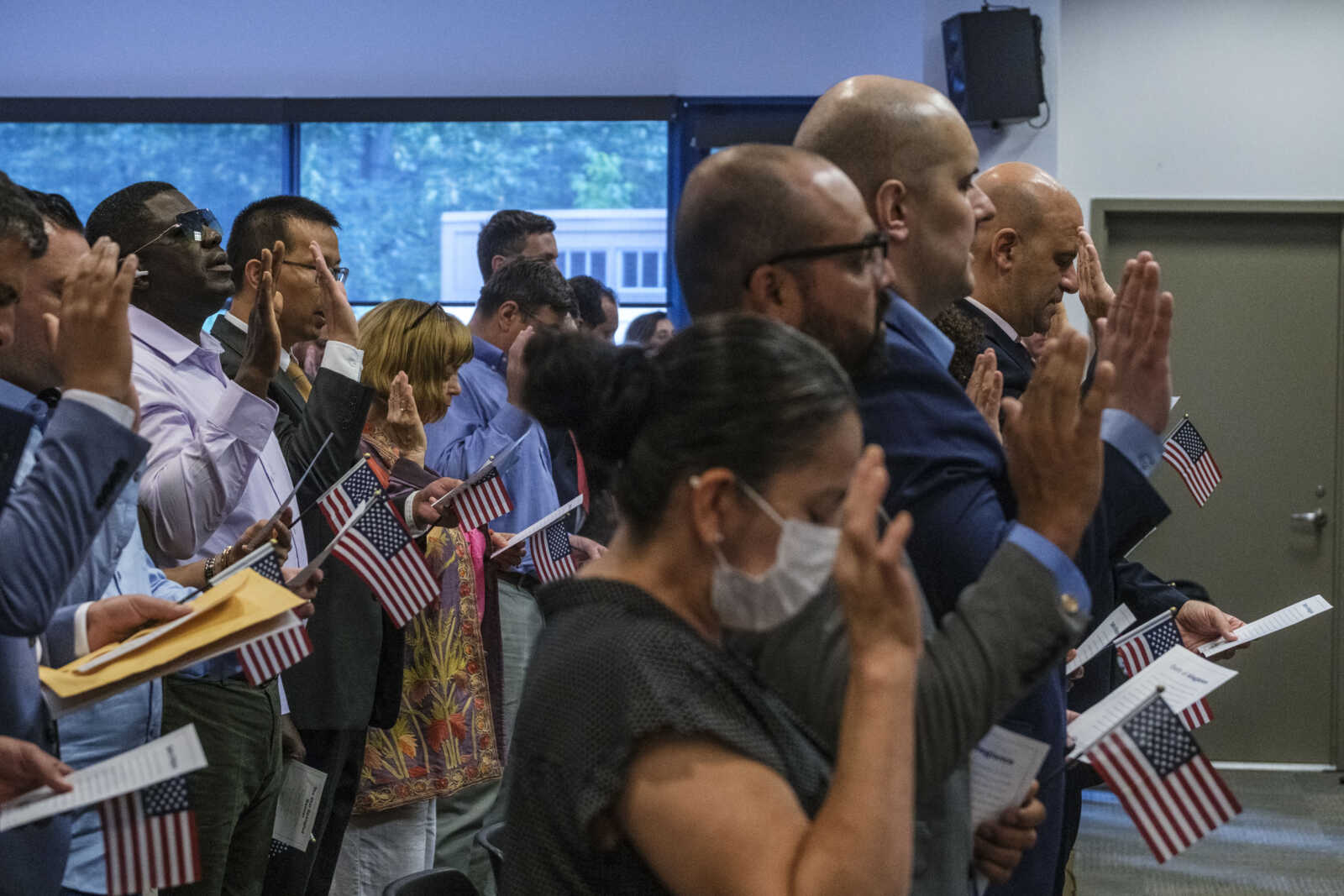With mini American flags in hand and camera phones at the ready, friends and family gathered at Arlington Central Library on Thursday to witness loved ones take the final step in their years-long journey to becoming U.S. citizens.
For the first time since 2019, Arlington Public Library hosted an in-person U.S. citizen induction ceremony at Central Library in Virginia Square. Fifty former green card holders from 29 different countries recited the Oath of Allegiance, marking the completion of their naturalization process.
“Many of you embarked on a journey from somewhere else. You left behind families and friends, cities and villages, farms and businesses, happy times, and challenging times, making sacrifices to begin your minds a new in this great country of ours,” Diane Kresh, director of Arlington Public Library, told candidates before they took their oaths.
For many candidates, the ceremony was a milestone they had waited over a decade to achieve.
Aparna, who asked ARLnow not to use her last name, said she immigrated to the United States from India in 2007 on a student visa. She eventually received a work visa and married her husband Piyush — who was naturalized in 2011 in Wisconsin before he met Aparna — in 2012. Although eligible for citizenship years ago, Aparna waited to apply, noting it was not an easy decision.
“It was an emotional change,” she said. “You can still be Indian, but you owe your allegiance to the United States.”
Loren Aka said she immigrated from the Ivory Coast to the U.S. in 2017 on a student visa to pursue higher education at George Mason University in Fairfax County.
Now married with a child, Aka told ARLnow she applied for citizenship this year after she received her green card, adding that it was a “smooth” process.
“I applied in January for the citizenship… And a couple of months later, they called me for an interview. I was interviewed in July. One month later, when I passed the interview. I was called here for the naturalization,” she said.
According to the U.S. Citizenship and Immigration Services (USCIS) website, eligibility for naturalization requires an individual to be at least 18 years old and to read, write and speak basic English. Candidates must also reside continuously in the United States for at least five years, or three if married to a U.S. citizen, and maintain “good moral character.”
After having their biometrics taken and being interviewed by a USCIS officer, the final step for the candidates was reciting the oath. USCIS Washington District Director Ron Rosenberg administered Aka and Aparna’s oath.
“I’m feeling good because I’ve started to be a part of the community of country since I’ve been in the United States. So, I feel like I want to keep going with what I was doing and I feel a part of the country,” Aka said.
Following the ceremony, interim Arlington County Board member Tannia Talento congratulated the room full of newly naturalized citizens. Talento, whose parents emigrated from Guatemala before her birth, highlighted how hard it is for a person or family to leave home and start anew in a foreign place.
“[My parents] came here in hopes of having something better,” Talento said. “And I always think about how hard it must be to leave your home, your language, your culture, and come to a new place where you likely don’t know many people, if any. A place where you don’t have guaranteed income and don’t know if they’ll understand you and your mannerisms, and yet you come in hope.”
Talento added that she’s “always admired my family who has made that journey.”
“I’m forever grateful that they did that because it has provided me, as a Latina American, the opportunity to have an experience and the life and dreams that they couldn’t have in Guatemala,” she said.
Talento emphasized Aka and her peers have a responsibility as newly inducted citizens to register to vote and participate in jury duty.
“Yes, a lot of people feel like that about jury duty,” Talento said, joking with children in the audience who groaned at the mention of jury duty.
When asked what they looked forward to following their naturalization, Aparna and Aka said it’s to be able to travel and vote.
“When you are a green card holder, you cannot vote,” Aka said. “That’s the only difference.”


